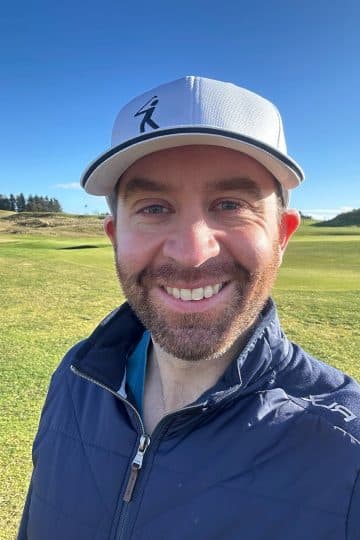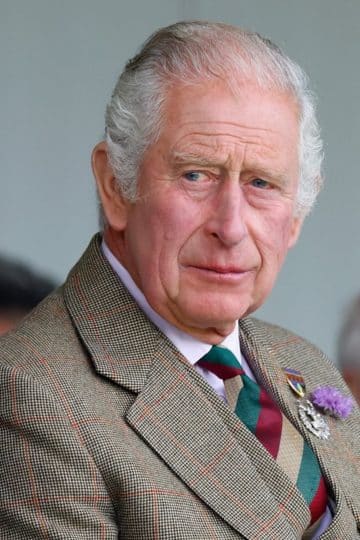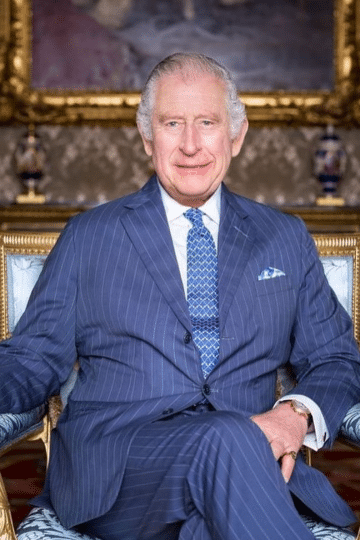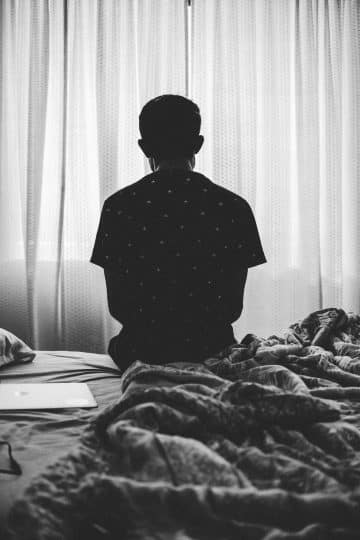Breast cancer in men – yes, we can get it too
Health
Breast cancer in men is rarely talked about. In fact, most people don't know men can get it. Here we give the facts and speak to a man who's been through it
October is Breast Cancer Awareness Month, and it remains a vitally important occasion in tackling this massive issue for women. There is very little awareness that men can also get breast cancer, however, something that Breast Cancer UK are trying to change with a fact sheet and a new video campaign, which you can check out here:
Breast cancer in men is much rarer than in women, but round 400 men a year in the UK are diagnosed with it. But because of the low awareness of it, it’s a cancer that is generally discovered later in men, which means it has a high mortality rate.
Here is a run down of male breast cancer, and below, we speak to Doug, who tells us about being diagnosed and his journey towards recovery:
What does breast cancer look like in men?
Most UK patients are diagnosed between the ages of 60-70, which is on average 5-10 years later than the age of diagnosis in women. The incidence of male breast cancer has remained stable in the UK for most age groups for the past 20 years, however, it has increased in the 65-69 age group by around 38%.
The symptoms for men include:
- A breast lump that is typically firm, painless, and immobile within the breast.
- Nipple inversion or inward turning.
- Nipple discharge, which may contain streaks of blood.
- Persistent soreness or rash around the nipple.
- Hardening, redness, or swelling of the nipple or surrounding skin.
- Presence of small swollen bumps in the armpit (enlarged glands).
Why isn’t breast cancer as common in men?
While research into female breast cancer continues at a steady rate, male breast cancer research remains significantly underfunded.
Breast cancer is much rarer in men than in women, mainly because men have less breast tissue and lower lifetime oestrogen exposure. Elevated lifetime exposure to oestrogen is a well-established breast cancer risk factor. However, this does not mean that men are in the all-clear.
What increases your risk?
- Weight: Being overweight or obese
- Diet: A poor diet, high in processed food, and alcohol consumption and low in fruit and vegetables
- Exercise: Lack of physical activity
- Chemical Exposure: Long-term exposure to harmful chemicals such as carcinogens (cancer-causing chemicals) or endocrine disrupting chemicals (EDCs).
- Occupational exposures – Studies suggest certain occupations may carry a higher risk of breast cancer in men due to long-term exposure to carcinogens and EDCs. These include motor mechanics, power workers exposed to electromagnetic radiation and steel and furnace workers.
- Genetics plays an important role in breast cancer in men. Around 20% of men with breast cancer have a close relative (parent, sibling or child) with the disease. Around 10% of men with breast cancer have the BRCA2 breast cancer susceptibility gene. Around 1-2% of men with breast cancer carry the BRCA1 gene. Both types of BRCA mutations also increase susceptibility to prostate cancer.
Hormones and breast cancer
As for female breast cancer, exposure to high levels of oestrogens is a significant risk factor for male breast cancer. Importantly it is the ratio of male hormones such as testosterone to oestrogens that is important for healthy breast tissue. Various factors may affect hormone levels, including:
- Inherited genetic conditions, especially Klinefelter’s syndrome – where men are born with an extra X chromosome; those with this condition account for around 7% of breast cancers in men.
- Synthetic hormones associated with male-to-female gender reassignment.
- Excess fat.
- Liver damage.
- Inflammation or damage to testes.
- Age is the most significant risk factor for breast cancer in men. Most UK men are diagnosed between the ages of 60-70.
- Radiation exposure due to medical treatment, especially at an early age, increases breast cancer risk in men.
- Studies found male infertility was associated with an increased risk of breast cancer in men (although the reasons for this are unclear)
Doug’s Story
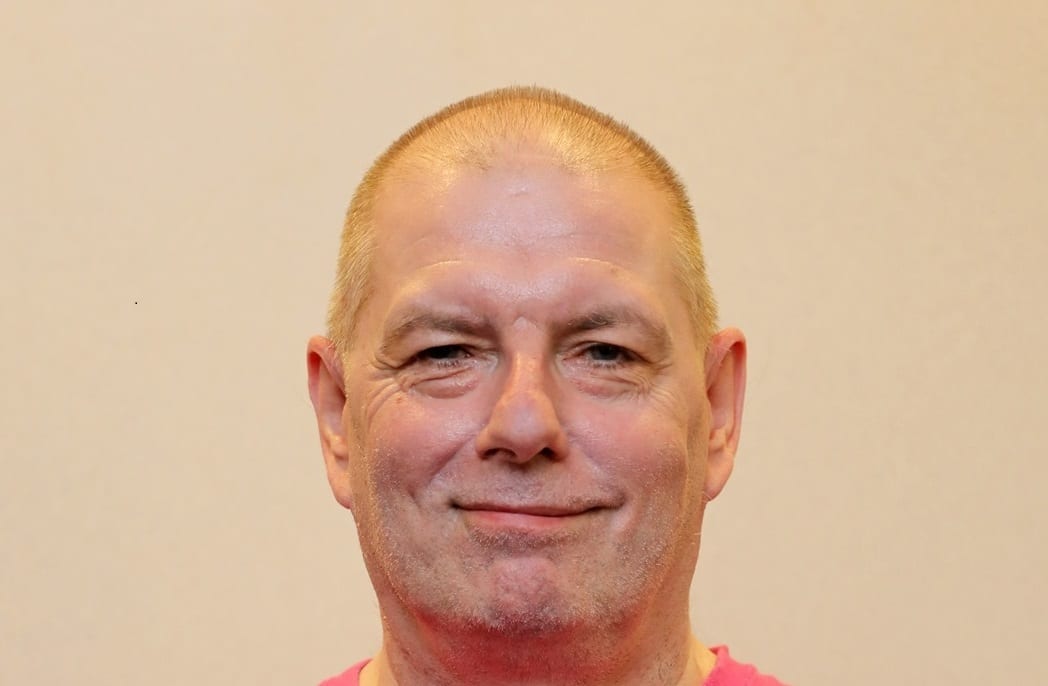
“It was 2011, and that summer I got what I thought was a cyst on my left nipple. I left it for a few month because at the time I didn’t know men could get breast cancer. But it got to Christmas and I thought I better go to to the doctors because it was irritating me.
I went to the doctor and had a few jokes with him, I took my top off and he went from laughing to really serious. And then started on his computer to book an appointment at the hospital.
I said ‘is it cancer?’ Expecting him to say no. He said, “We can’t rule it out.”
A couple of days after Christmas I went to for checks at the hospital, including an ultrasound. A couple of weeks later, three days before my 50th birthday, I went to the oncologist. I’d read a couple of days before that men can get breast cancer but I dismissed it as it’s so rare and I’d never heard of it. But I went to see the oncologist and first thing he said was: “it’s cancer.”
I didn’t hear anything else he said, what stage I was at or anything, the word ‘cancer’ was just echoing round my head. I remember saying, “Am I going to die?” And he said, “We’re going to try and not let that happen.”
I left in a daze. I was so shocked.
The GP gave me a prescription for this stuff called Tamoxifen. I went to the pharmacist and he said to me, “This is a mistake, this isn’t for you,” – this was really loud in front of other people – “…this is for women.” And I said, “Mate, men get breast cancer too. “And that was the pharmacist!
It is so rare. I was the first man to be diagnosed with it at the hospital in three years, which was good in one sense as every time I rang they knew exactly who I was.
I had a mastectomy a few weeks later. When they give you a mastectomy they also take some lymph glands out of your arm if they’re cancerous. And there were one or two out of 20. So I had two operations in two weeks, I had complications but finally did my chemo at the end of 2012. Six sessions of that and then I had radiotherapy for three weeks.
The whole year I felt useless and out of control. My hair was going to start falling out with the chemo, so I thought this the one thing I can control, so I cut it really short and dyed it red. I thought it looked good and then when I did the chamo, I shaved it all off.
There was no awareness of men with breast cancer. It was 350 a year then and it’s 400 a year now. I started a blog straight a way. It was therapeutic and I was trying to raise awareness. The breast cancer meetings were all for women really.
I was on Tomoxifen for 5 years after the treatment, and it ruined my quality of life. These things affect people in different ways. .You get 90 year old women who are fine with it, and others are laid out.
I’m all clear now. You go for check ups every couple of months afterwards and now I have a mammogram every 2 years.
I know more men who have it now, but I the time I felt at a loss that I didn’t have anyone to speak to about it. You’re doing that intensity for a year. I spoke to a psychologist because it was such a shock and you get a physio because you get so many aches and pains.
When I was going to chemo someone said make sure you eat pineapple, you get ulcers in your mouth so pineapple is really good. Your toenails fall off. And you get blue wee when you get chemo. Which I’m glad they warned me about!
It’s really good to have Breast Cancer UK because there is such a lack of awareness of men with breast cancer, which means there;s quite a high death rate. And that’s only because it’s treated too late because either men aren’t aware its breast cancer or they do a typical man thing and leave it.
I was pushed to go to the doctor. I was going to leave it, I thought it was cyst. Two guys who I later met were told it was a cyst by a doctor and to come back in 6 months. Luckily they survived.
Men basically don’t realise they have breast cancer. Which is why me and Breast Cancer UK re getting it out there that men get it too because it’s really dangerous. Protect Ya Pecs is a brilliant campaign.

Join The Book of Man
Sign up to our daily newsletters to join the frontline of the revolution in masculinity.








